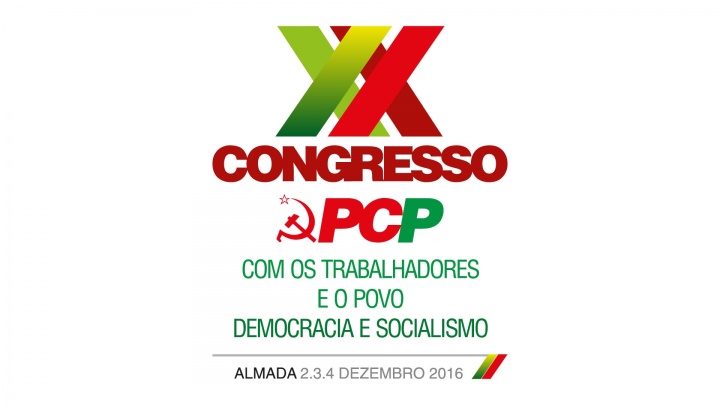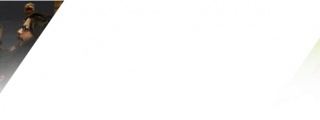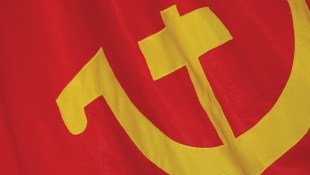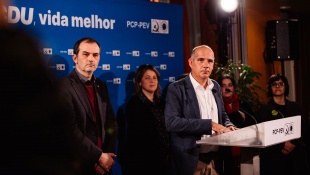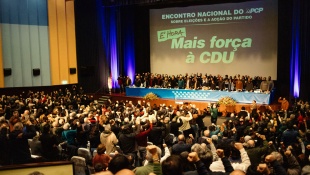Resolution on the upcoming 20th Congress of the PCP
I
The Central Committee of PCP met on 4 and 5 March and decided that Almada's municipal sports centre (Complexo Municipal dos Desportos – Cidade de Almada) will be the venue for the XXth Congress on 2, 3 and 4 December 2016 .
The Central Committee of PCP has decided on the preparation of and proceedings at the Congress, namely as regards working methods, stepwise approach and objectives, with a view to ensuring a broad participation by the Party's collective.
The Central Committee of PCP has listed a range of topics that should play a central role in the initial discussions on the Theses – Draft Political Resolution. These topics are a basis for the reflections and discussions in the Party's organisations and amongst members and are a set of indicative elements for the initial drafting of the document to be submitted.
II
The XXth Congress takes place in a national context where the nefarious consequences of the exploitative nature of capitalism and its structural crisis; of the process of integration into the EU; and of the right-wing policies that were pursued over the past few decades and in a particularly violent form in recent years with the Stability and Growth Programmes (Planos de Estabilidade e Crescimento, PEC) and the Pact of Agression signed by PS, PSD, CDS-PP with the IMF, the European Union and the ECB have become ever more visible.
The Congress takes place at a time when the key national problems that are inseparable from the consequences of the dominance of monopoly capital, the degrading and decharacterisation of the domocratic regime and placing national sovereignty into jeopardy are apparent. The preparation of the Congress takes place in a new phase of the country's political life when, in the wake of the defeat of the PSD/CDS-PP government, more favourable conditions have emerged to address the urgent issues affecting the workers and the Portuguese people.
It is against this backdrop that the Congress is called upon to carry out an analysis of the national situation, of the developments in the process of capitalist integration in the European Union and of the international situation.
The XXth Congress is also called upon to assess to work carried out and to discuss and define the guidelines, the directions of the Party's work and the tasks deemed indispensable to achieve our essential aim: that of strengthening PCP, its organisation, activities and initiatives, its political and ideological influence and promoting the Party's ideal and project, as well as developing and intensifying the struggle and bolstering organisations and mass unitary movements, extending the unitary political work, internationalist actions and solidarity.
The XXth Congress will therefore be a significant event in the current national and international context, both with regard to the analysis of the situation and the definition of guidelines and courses of action to defend the interests and aspirations of the workers and the people, to break with right-wing policies, to strive for patriotic and left-wing policies, an advanced democracy, socialism and communism.
III
The Central Committee has drawn up a series of issues and topics to be debated by the Party's collective during the first stage of the preparation of the XXth Congress, so as to allow the widest possible contribution by Party members and organisations in defining the key elements to be included in the Theses – Draft Political Resolution. While not necessarily reflecting the final structure of the document to be submitted to the Congress for discussion, the following topics are listed below grouped into four broad areas:
Topics to be debated in the Party's organisations
International Situation
• The structural crisis of capitalism and its worsening in recent years. The nature of capitalism and the intensifying of its contradictions. The processes leading to the concentration and accumulation of capital. The environmental, food, economic and political crises. The uneven development of capitalism. Collaboration and rivalries in inter-imperialist contradictions. The onslaught against workers rights, the sovereignty of peoples, democracy and the independence of States. The threats to Peace. The intensifying of exploitation and the worsening of social and development inequalities. The intensifying of class struggle. Dangers and potential.
• The process of re-arrangement of forces in the world. The aggressive attitude of the USA and its allies, the stance and role of so-called emerging countries, namely Russia, China, India, South Africa and Brazil. Areas of coordination and cooperation that effectively put into question imperialism's hegemony.
• The tools used by imperialism for its economic and financial domination. Mechanism for the “regulation” of the system. Systems for integration through institutions established and dominated by monopoly and transnational goups for supra-national dominance. The European Union.
• The strategy of imperialist rule. Militarism and war. The wars of aggression. NATO's expansionism. Migratory and refugee flows, causes and responses. The pretexts of the “war on terror”, of the “defense of democracy and human rights” and of the “elimination of weapons of mass destruction” in the strategy of aggression and dominance. The slide towards anti-democratic and oppressive policies and regimes. The fascist threat. The neo-colonial and re-colonial drive.
• The ideological onslaught of imperialism. World centres of misinformation. Processes to manipulate and format people's minds on a world scale. Key means and instruments. The re-establishment of political forces, the reconfiguration of social-democracy. The ideological struggle and the fight against reactionary and revanchist forces and against social-democracy as a structural component of imperialism. The fight against anti-communism.
• The emancipatory struggle of workers and of peoples. The correlation of forces on the world stage. The resistance to the imperialist onslaught, the forces of social progress and of Peace. The importance of their cooperation and unity in action. Nature and forms of the struggle. Role of the national States and of reasserting sovereignty. The anti-imperialist front.
• The International Communist and Revolutionary Movement. The irreplaceable role of communist parties, their close association with the masses and their internationalist cooperation and solidarity. Situation and perspectives. Processes of decharacterisation and reformism, expressions of sectarianism and dogmatism. Proletarian Internationalism. The communist parties, the need for their organic and ideological strengthening and their cooperation with other revolutionary, progressive and anti-imperialist forces.
• Socialism: the alternative to capitalism. Historical limitations of capitalism. The communist ideal and project and its topicality.
National situation
• The process of capitalist integration in the EU. The country thirty years after accession to the EEC. The nature of the neo-liberal, federalist and militaristic project and the illusions regarding its democratisation or social dimension. The crisis in and of the European Union and the process of concentration and centralisation of economic and political power. The key contradictions of the integration process.
• The instruments of economic, budgetary and political dominance in the European Union. The EMU and Portugal's submission to the Euro. The Euro as an instrument for economic and political dominance. Other mechanisms of dominance in the EU. The necessary break with the instruments imposing contraints and dominance and the need to uphold Portugal's right to sovereign development .
• The country's economic situation. The consequences of right-wing policies. Portugal after the Growth and Stability Programmes (PECs) and the Pact of Aggression. The so-called memorandum of financial assistance signed by PS, PSD and CDS-PP ,as an instrument for exploitation, impoverishment, decharacterization of the democratic regime and usurpation of sovereignty. Consequences of its application. Public debt as an element for the extorsion of national resources, as a stranglehold preventing economic development and social progress and of national submission.
• The structural deficits. The productive structure and national production. The selling-off of strategic companies and economic sectors as a factor that jeopardizes sovereignty and independence. Promiscuity between political and economic power. The channeling of State resources into banks and financial capital. The role of the Bank of Portugal and of the ECB. Recovering control over monetary policy and exchange rates and its integration into a policy upholding national interests .
• Effective public control over the financial sector and strategic sectors of the economy as a requirement to ensure the country's sovereignty and development.
• The process of capitalist centralisation and concentration, the involvement of foreign groups and capital and their growing influence over the national economy. Foreign investment as a means to take over sectors of the national economy and economic decline. The property and use of the land and the process of concentration of property.
• The PSD/CDS government's actions: a new level in a course of right-wing policies. The aim of accelerating the reconfiguration of the State and of subverting the Constitution. The so-called programme of financial assistance as a pretext to abolish rights and the launch an assault on the income of workers and the people. The defeat of the PSD/CDS government and its significance.
• The non-compliance with and systematic violation of the Constitution. The role of the President of the Republic, Cavaco Silva in defending and validating the policies leading to a national disaster and the unconstitutional initiatives of the PSD/CDS government.
• The new phase in the national political life. The joint stance of PS and PCP for a political solution – its nature and scope. The establishment of the PS government and the new correlation of forces in Parliament – expectations, possibilities and limitations. Role and political struggle by the Party and the role of mass struggle.
• Pre-requisites for a break with right-wing policies – a break with the interests of monoply power and with the constraints and instruments for external dominance, namely from the European Union.
• The social situation. The worsening of inequalities and the spreading of poverty. Factors of inustice in the distribution of income – an unfair tax policy, the intensified exploitation of labour, the cuts in social support and benefits. Regional assymetries, desertification and the dwindling population in the hinterland. Environmental degradation.
• The rights of workers, the fight against unemployment and casual work, valueing collective bargaining and agreements. The situation of younger generations faced with a cut-back in their rights. Restrictions to the exercise of rights in the workplace.
• Situation and issues affecting the noon-monopolistic classes and social strata – small- and medium-sized farmers, fishermen, and micro-, small- and medium-sized entrepreneurs.
• The reconfiguration of the State to serve monopoly capital. The theory of “less State, better State”. The notion of a “minimal State” as a pretext to abolish social, political and cultural rights. The privatisation of public services and their commodification. Defending public services and the State's social functions. The onslaught against Local Authorities and their administrative and financial autonomy. The absence of Administrative Regions. The attacks against regional autonomy.
• Perverting the democratic regime with a view to establishing an authoritanian one. The attacks on rights, liberties and guarantees. The onslaught against the independence of the judiciary and the restrictions to the access to justice. The situation in the security forces and services.
• Ideological struggle as one expression of the class struggle, and as a decisive battle in the struggle for the alternative, for advanced democracy and for socialism. Essential directions and tools for the ideological offensive.
• Foreign policy and its submissiveness to imperialism.
• The situation within the Armed Forces, the Constitutional mandate for its missions, and the changes in the way national defense policy is framed.
• The onslaught against culture, plus its gradual elitisation and commoditisation. The mass media's culture. Culture as a battlefield, expressions of creativity and action for change. Cultural policy as an element of liberation and as a component of sovereignty.
• The big business conglomerates' rule over the mass media, and suppresion of the right to information.
• The patriotic and left-wing policies.
Mass struggles and organisations, political work and the alternative
• Mass struggle as the decisive factor in striving for, and achieving, social change.
• Working-class and working people's struggles, and convergence into a broad social front as the core of resistance against the [troika's] Aggression Pact, and as a way to socially and politically isolate and defeat the PSD/CDS-PP government.
• Role and features of the mass struggle. Goals, scope, intensity and diversity. The struggle's nature and methods. Objective and subjective factors.
• Mass struggles for specific and immediate goals: to protect, reinstate and gain rights, for a break with right-wing policies, for patriotic and left-wing policies.
• Social forces, their evolution and line-up.
• The working class's and working people's unitary organisation. The Unitary Trade-union Movement. Workers' councils. Working people's organisation, unity and struggle. Factors that generate unity or division.
• Mass movements and organisations among other non-monopoly classes, strata, and sections of the population. Expressions of local communities' organisation and struggles.
• Political initiative and the alternative.
• The political backdrop. The political forces. Balance of forces. Cooperation and convergence among democrats and patriots.
• Political parties represented in parliament. Other political forces, trends and manifestations. Populism and its anti-democratic nature.
• Political struggle, electoral struggle and struggle within the institutions. Communists' work within the institutions.
• The alternative and the struggle to implement it. The break with right-wing policies. Alternative policies and the patriotic and left-wing political alternative. A stronger PCP and mass struggle as pre-conditions for their implementation.
The Party
• The Portuguese Communist Party. Essential features of the Party's identity and of how it asserts itself. Party of the working class and of all working people, that upholds the interests of anti-monopoly classes and strata. A party independent from the forces of capital, their influence, their interests, their ideology and politics. A party that operates based on the creative development of democratic centralism, with deeply-rooted internal party democracy, a single general line and a single central leadership. A Party with a theoretical foundation – Marxism-Leninism: a materialist and dialectical world view, an analytical tool, a guide for action. A patriotic and internationalist party. A party whose prime goals are to build socialism and communism.
• Immediate participation and action, but inseparable from the Party Programme: advanced democracy – the April [1974 revolution's] values in Portugal's future, socialism and communism.
• The Party's goals, the conditions under which it operates, the challenges. The PCP, a force for action and change. Confident, determined and decisive work, with workers and the people.
• The lines of attack against the Party, to restrict and hamper its work. The anti-democratic legislation being imposed. The ideological offensive (anti-communist action, rewriting of history, fostering individualism, as well as “this is the way it has to be” and “you can't fight it” attitudes); the mass media's role in the ideological offensive, the role of schools, and the involvement of other media. The necessary response in all these fields.
• The Party's operational and organisational principles as one of the key features of its identity, its cohesion, its strength, and its ability to make a difference. Inner-party democracy, a single central leadership and a single general line. The Party's mode of operation: collective work, individual contributions. Methods used to disintegrate the Party's cohesion, strength and prestige, new expressions such as “horizontal debate”, with specific reference to the use of electronic communications.
• Leadership structures at all levels and how to strengthen them. Style of work.
• Militancy as a key element of the Party's strength. The value of militant work. Persistence and determination. Making the best use of available militancy.
• Recruitment, involvement and integration of new members.
• The Party cadre. Cadre policy. The need for more Party members to take on long-term responsibilities at the various levels. Political and ideological education, training courses, individual reading and study, practical work and involvement in party life.
• Party organisation and work among the working class and all working people – on the shop floor and in workplaces – as an essential priority. Creating and strengthening party cells. Modes of operation and work. Measures concerning leadership and cadre management.
• Structuring work among social groups and strata, as well as on particular areas/topics. Stregthening JCP's [young communists] work among the youth. Work and organisation in the areas of culture, among intellectuals and technical workers. Work among retired persons. Work among farmers, fishers, as well as with micro, small and medium-scale business owners. Work addressing women's issues. Work together with other social strata and sections of society.
• Local community-based organisations and their work.
• Organisation, work, links to the masses, extending influence and organisational capabilities. Organise to be able to participate. Work to strengthen the organisation.
• Information and propaganda. Goals, contents, means and structures for outreach. Ways to improve the effectiveness of information, to convey it to more people, more speedily.
• The party press. The central role of Avante!, of reading it and spreading it. Structures and initiatives to promote distribution and periodic volunteer direct sales. Special actions. Actions to contact and win new regular readers. General distribution methods. O Militante [party organisational publication], its role and distribution.
• Publishing activities. Initiative, priorities, distribution methods, ways to promote reading and study.
• The heightened importance of electronic communication. Current structures and how to expand them. The Party's internet site. Social networks and other methods to publicise the Party's views, proposals and goals.
• The Avante! Festival. Making it even better and larger, with the new expansion of grounds to include the Cabo Farm. The role of militant participation [in the Festival], a valuable contribution in every aspect, from planning to design, construction and operation. Ways to better advertise the Festival and promote the sale of EPs [unlimited entry tokens].
• The Party's financial independence and the need to enhance it. The attacks against the Party and the attempts at interference via the law on political party financing. The key role of collecting dues, and of achieving the reference goal of 1% of monthly income, of regular payment, structures to collect dues. Fundraising campaigns. Enhancing income, careful financial management and spending decisions, and financial balance.
• International work and internationalist action.
IV
The PCP Central Committee considers that the [party] Programme “An Advanced Democracy – the April Values in Portugal's Future” (adopted at the 19th Congress), and the Party by-laws, that have been improved in previous congresses, correspond to current requirements, and therefore do not need to be changed.
V
The PCP Central Committee considers that it is extremely important for the largest possible number of Party members and organisations, for the whole party collective, to participate in the Congress's preparatory work. Based on past experience, it has thus established three interconnected and complementary stages for the 20th Congress preparation:
The first stage will run until the end of May and involves collective debate throughout the whole Party about what are the key issues that the Congress must address, as well as a structural outline of the topics to be included in the Theses – Draft Political Resolution, based on the issues, topic and guidelines set out by the Central Committee resolution adopted at its 4-5 March meeting.
The second stage will run until August, and will involve drafting the Theses – Draft Political Resolution, taking into consideration the debate and contributions from the first stage.
The third stage will begin in mid-September, after the Theses – Draft Political Resolution has been published in Avante!. It will be dedicated to members' participation, with a Party-wide debate on the Central Committee's Draft, during which delegates will also be elected, in accordance with the Congress Rules adopted earlier by the Central Committee.
VI
Preparing and holding the 20th Congress in the current situation, seeking to provide answers to the major issues that are at stake, is part and parcel of the Party's overall work and should contribute toward developing the mass struggle, organising and enhancing the unity of working people and of other non-monopoly classes and strata, and toward enhancing the Party's work while asserting its ideal and project for the future.
The PCP Central Committee calls upon the Party's organisations and members, upon the whole of the Party collective, to contribute – with their experience, thinking and opinions – toward the 20th Congress's success: To strengthen the Party and to step up the struggle for better living conditions for workers and for all the people, for a break with right-wing policies, for patriotic and left-wing policies, toward an advanced democracy, socialism and communism.
